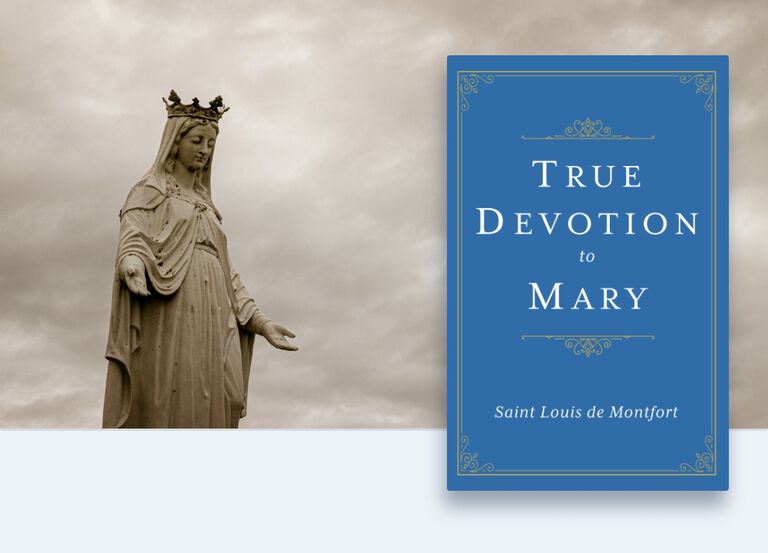What Real Wisdom Looks Like
You can't have two kings. Everybody knows that. Notice this strange notion in this story. King Herod is king, but wise men from the east come to King Herod and say, "Hey, we heard the king has been born. We've come to meet the king." They're asking a king, "Where's the king?" Everybody knows you can't have two kings, and that sets up the story of Jesus's life, earthly kings trying to destroy God's king. On the great day of judgment, we're all going to realize there's only one king. But notice also when Jesus comes, it says Herod was disturbed and all of Jerusalem with him. Jesus's arrival creates a response. He causes a stir. So Herod then sets into motion a conspiracy to kill Jesus, and he is later joined by the religious leaders. "We've got to get rid of this fella, the king." So one lesson here is, good news has its enemies. It's not always popular to be a Christian, to be a Catholic, to love the poor, to be an advocate for children in a grown-up's world, to remember the neglected. You may make some enemies.
But notice the wise men. It says they have been seeking him. And what do they do when they find him? They bow down and worship. In fact, in this passage today, the word is used three times. First, they say, "We want to worship him." That's their motivation. "We want to worship." Second, Herod says, "I want to go and worship him too." He is deceptive. He really just worships himself. And third, the wise men arrive in the presence of Jesus and they fall down and worship him. That's the response to being in the presence of the Lord, to fall down and worship.
Worship. It's such a lovely word. I'm afraid it's endangered. I'm not sure why we just don't hear that word much anymore. I'm kind of worried about it. I like worship. It's a good word, a friendly word, a reverent word, a special word. Worship. And frankly, I'm afraid if you and I don't do something, we may lose it. In case you haven't heard worship much, I looked him up in Webster's. The first definition: to show reverence or devotion to a deity. The second: to demonstrate extreme devotion, intense love, admiration, and adoration. What a wonderful word. Worship, he's a little older. He has some gray on the temples. Maybe his hair's thinning a bit. He's been around a while. But in the Greek, there in the New Testament, worship literally means to fall prostrate on your knees and to kiss the feet or the ground or the hem of the garment of someone. Sometimes it's translated as bow down or to kneel, and what it meant was to present your neck to the ruler, to kneel in submission, that he could cut off your head if he so chose, to completely be prostrate. The wise men are pretty serious about this worship thing. They bow down and show intense love for. We don't do that much anymore, to bow down and show intense love for. Maybe that's why worship's in danger. They say, "We saw his star in the east and we came to worship him." That's why they came. That was their purpose in traveling across the country to find this child. "We want to worship the king."
Today, a lot of folks view worship as one choice among many, something to do if we desire or if we have time. Sunday worship, Mass, is just like other recreational choices or tasks to complete. "If I have the time or the inclination, yeah, I'll go to church. If not, maybe I'll go shopping, do the laundry, or watch some football." Some of us see Sunday worship as fulfillment of an obligation, or others of us see it as a quiet, meditative moment in our very busy lives. Or maybe you see it as an opportunity to be inspired or encouraged. We want to be fed. How often do we hear that? "I just don't get anything out of it." But today I'm talking about worship. Demonstrate extreme devotion, intense love, admiration, and adoration. You and I attach ourselves to the death and resurrection of the Lord Jesus. We present ourselves before him in submission and intense love because the fact of the matter is, if we don't worship God, we'll worship something else. [laughter] Plenty of people worship government, other causes, beliefs. All those are competing for our devotion. Or maybe, like Herod, we'll just be self-centered and worship ourselves.
But the wise men are wise. That's why we call them wise men. They not only worship, they empty their treasures, offering the king gold, frankincense, and myrrh. Perhaps they had heard that where your treasure is, there your heart will be also. Or maybe they knew that the kingdom of God is like a treasure in a field and they were willing to give up everything for it. Maybe they just yearned to have a treasure in heaven. That's intense devotion, to give myself and all that I am and all that I have over to him. The wise men knew there was only one king, and to worship him is their motivation and their purpose. His name is Jesus, the king. Jesus has come. He's here. How you respond is entirely up to you. But if you ask me, wise men seek him before anything else. Wise men and wise women worship. Because if you don't worship God, you'll worship something else.


